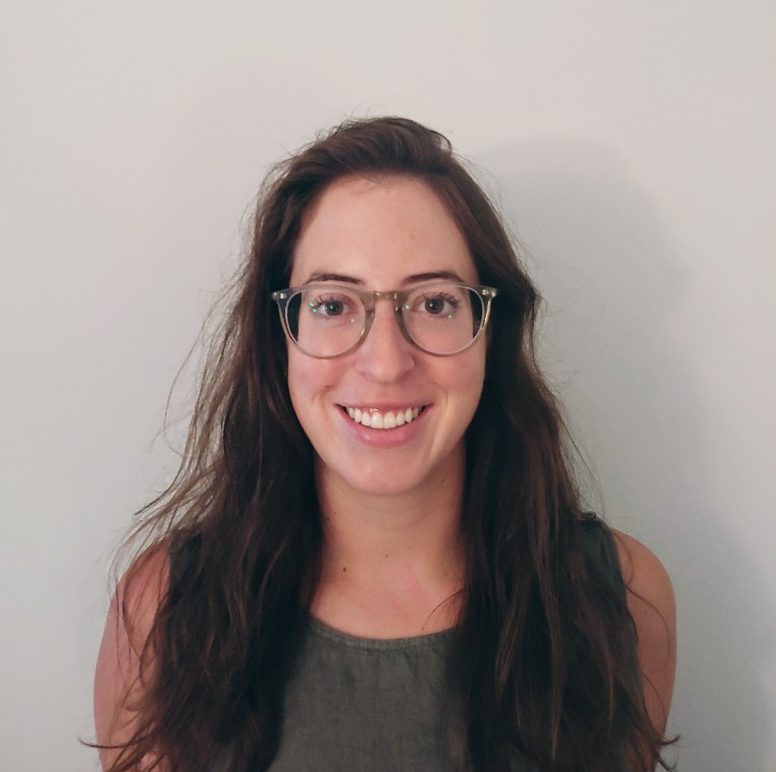By Michelle McKee
In graduate school, I, like many others, spent much of my time focused on two major questions: (1) How am I going to get this dissertation done? (2) What am I going to do after?
The answer to the first was challenging, but I had some sense of the process of getting there. Finishing my Ph.D. in Biology at Worcester Polytechnic Institute required long hours in the lab, writing grants and papers, and ultimately compiling six years of work into one long document.
The second challenge, however, was much more open-ended. I knew I wanted to have an impact outside the lab bench and was interested in learning more about science policy. I explored this interest through the limited options available to me, such as attending science policy-focused seminars and participating in a Congressional Visit Day with the American Society of Agronomy.
Frustrated by the lack of opportunities in this space, I joined a science policy graduate student group that was focused on establishing a science and technology policy fellowship available to any graduate student in the Commonwealth of Massachusetts. We found many other states that were working towards or already had established similar programs. Surprisingly, despite being a leading state for scientific research and technology, there were no equivalent programs in Massachusetts. Therefore, we decided to take action.
It was through these efforts that I found the Scientific Citizen Initiative (SCi) at Harvard Medical School. I was excited to learn they had created the foundation of such a program by piloting the Massachusetts Summer Science and Technology Policy Fellowship (MASSTPF). Inspired by our shared goal of making the MASSTPF accessible to the full diversity of graduate students in the state, I joined SCi to analyze their pilot program and draft a proposal for its expansion (all while working full-time as a postdoctoral researcher at the Whitehead Institute). This work involved researching all other state fellowship programs, reviewing the material and evaluations from SCi’s pilot, and identifying the resources needed for the next phase of the program. The results were then compiled into the report titled “Expansion of the Massachusetts Summer Science and Technology Policy Fellowship at Harvard Medical School.”
Through this process, I most enjoyed reading the journals of the fellows that had participated in the program. They were vulnerable in writing about their challenges and learning moments, which led to strong victories for them personally and their teams. There was resounding agreement that the experience was beneficial and gave them the perspective they sought. It was also amazing to see a unanimous desire from the legislative offices to continue to host future fellows and a willingness to recommend the program to other offices. It was obvious to me that this program was achieving exactly what it was designed to do and that there would be much benefit to opening the program to other graduate students.
Two main factors make the expansion of MASSTPF a no-brainer for me. First, a career development program as powerful as the MASSTPF needs to afford all graduate students the opportunity to participate, regardless of their institution’s resources or location. This step would create a more equitable program and allow for more diverse fellow cohorts. I expect this goal will be met with strong support from Massachusetts institutions and legislators. Secondly, the graduate students are an incredible resource for the state’s lawmakers. The ever-changing world around us requires prudent policy reaction, and data show that lawmakers welcome nonpartisan information in creating policy. Graduate students are trained to conduct the type of research policymakers do not have time to do, and the MASSTPF pilot demonstrated they are capable of using these skills to provide valuable input to the policy process. As a Massachusetts resident, I personally would like to see more scientific expertise in our State house.
I truly enjoyed working closely with Dan, Josep, and the rest of the SCI team on this report, and I look forward to the continued evolution and improvement of the MASSTPF.

About the Author
Michelle McKee is a researcher at SCi, focusing on the MASSTPF Program Expansion. She worked with SCi from 2021-2022.
